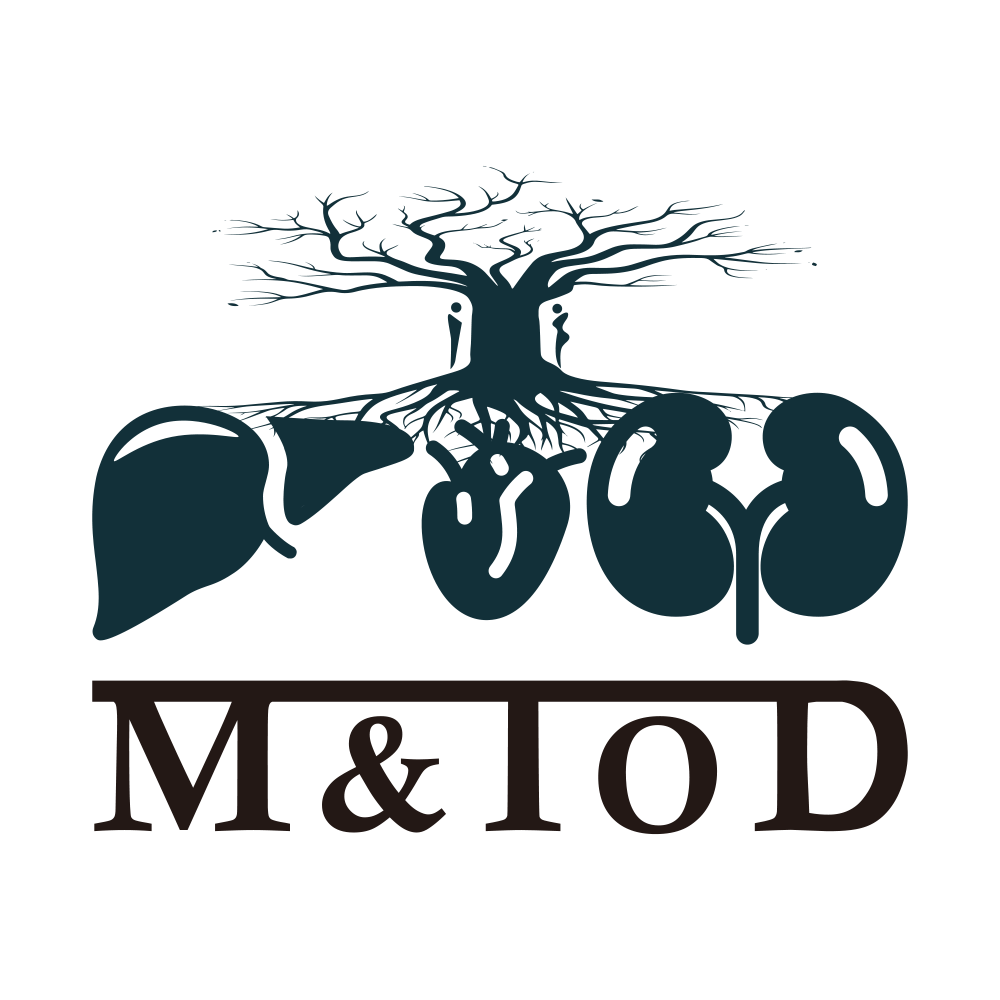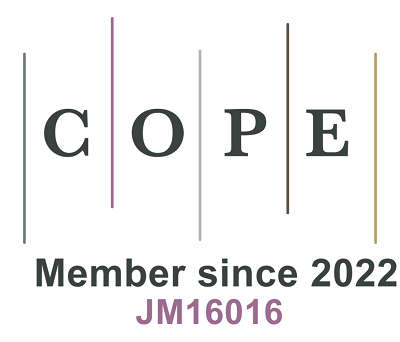Editorial: metabolic and bariatric surgery: current situation and future challenges
Obesity has become a global health crisis that affects multiple organ systems. In recent years, with the increasing incidence of obesity, metabolic and bariatric surgery (MBS) has been rapidly developed. Common surgical interventions for weight loss encompass sleeve gastrectomy (SG) and Roux-en-Y gastric bypass (RYGB). MBS provides multi-organ benefits; implementation should focus on managing complications and comparing new anti-obesity medications (AOMs). Priority should be given to follow-up care and active management of postoperative micronutrient deficiencies in patients.
While research on MBS is increasing, we still need more data on its effects and complications across various organs and adequate quantitative data on surgical procedures. This Special Issue aims to expand this knowledge and bridge existing gaps. The article presented here shows how MBS can be utilized to treat obesity and its multi-organ complications and comorbidities.
Alcohol abuse is a major cause of cirrhosis worldwide due to liver damage. Matthew et al. explored the complex relationship between obesity and alcohol abuse in the context of MBS patients. They highlighted that the relationship between obesity and alcohol use disorder (AUD) is multifaceted, shaped by environmental, psychosocial, and genetic factors[1]. Morbidity and mortality are elevated among those with obesity and cirrhosis. MBS presents as a feasible treatment option. MBS also plays a prominent role in metabolic dysfunction-associated steatohepatitis (MASH). Obesity is a recognized risk factor for chronic kidney disease (CKD). The presence of numerous other conditions associated with impaired kidney function complicates the implementation of weight loss treatment. MBS is increasingly recognized as a safe and effective therapeutic option for patients with obesity, diabetes, and CKD. Yoona et al. reviewed the current pathophysiology of obesity-induced kidney damage and the effects of MBS on renal function in severely obese patients with or without CKD. They presented evidence on perioperative management strategies, highlighting the urgent need for interdisciplinary collaboration to elucidate the pathophysiology of obesity-related kidney disease amid the rising prevalence of severe obesity[2]. Obesity is associated with significant morbidity and mortality, often due to cardiovascular disease (CVD). MBS reduces all-cause mortality and cardiovascular mortality in patients with obesity. MBS has emerged as a promising option for treating end-stage heart failure (HF) patients with obesity who require a left ventricular assist device (LVAD). Steven et al. found that in the absence of other contraindications, patients with obesity who receive LVAD support can lose enough weight to later qualify for heart transplant treatment. MBS constitutes an effective and safe approach for LVAD support in patients with obesity and end-stage HF[3]. MBS has the potential to significantly ameliorate symptoms of obesity-related cardiomyopathy, serving as a bridge to either transplant or heart recovery through effective weight loss.
Factors such as surgery type, postoperative care, adherence, and complications must be considered when evaluating weight loss and quality of life (QoL) after long-term MBS. Although all existing surgical modalities lead to substantial and sustained weight loss, they necessitate additional long-term comparative data for comprehensive evaluation. The Bariatric Analysis and Reporting Outcome System (BAROS) is a highly reliable scoring system following MBS. Isabela et al. analyzed long-term weight loss in MBS patients, compared weight loss based on surgical techniques, and assessed patients’ long-term postoperative QoL. Their findings indicate that MBS is effective in both long-term weight loss and improving patients’ QoL[4]. Consultation with an obesity management specialist is recommended for postoperative complications, and assessment tools, methods, and long-term follow-up are essential for evaluating surgical outcomes.
Modified MBS is associated with generally favorable outcomes and exerts a positive impact on patients. Andries et al. investigated the efficacy and safety of primary banded Roux-en-Y gastric bypass (B-RYGB), primary banded long-limb gastric bypass (B-LLRYGB), and revisional B-RYGB in the treatment of RYGB postoperative weight loss (≤ 50.0%) or weight recovery. In patients with Class III and Class IV obesity, B-RYGB, B-LLRYGB, and revisional B-RYGB effectively achieved weight loss with low complication rates at 1-year follow-up[5]. Marginal ulcer (MU) is a common complication of RYGB. Dustin et al. conducted a literature review to summarize the treatment of MU, which presents a pervasive and complex challenge due to a combination of technical and patient-related factors. The diagnostic process for symptomatic patients starts with upper endoscopy, followed by medication and modification of relevant factors for managing MU[6]. Identifying pertinent risk factors can facilitate improved management of patients at early risk of MU. Further research is needed to compare data on MU, prevention strategies, and treatment approaches for patients undergoing RYGB with various surgical modalities.
Long-term significant weight loss, as seen in MBS, can lead to various complications such as nutritional deficiencies, metabolic issues, gastrointestinal problems, and psychological concerns. Sarah et al. demonstrated that weight loss can result in adverse effects, including gallstones, constipation, muscle loss, fractures, vitamin deficiencies, peripheral neuropathy, suicide, eating disorders, alcohol dependence, and increased divorce rates[7]. Understanding these risks improves treatment success and prepares clinicians/patients for obesity therapy.
Discussing the standardization of MBS outcomes requires acknowledging it as a complex, multi-dimensional process beyond mere numbers or scales. Pantelis investigated current knowledge of MBS measurements and potential revisions that would improve the ability to assess weight relapse and improve services provided to patients with obesity[8]. The diverse definitions of underweight recovery and weight loss stem from a lack of consensus and limitations of weight/BMI-based assessments. Standardizing MBS outcomes is complex yet crucial, requiring consensus-building, guidelines, advanced data analysis, and international collaboration while addressing individual differences and long-term follow-up challenges. Training and education for healthcare professionals are also essential.
MBS faces challenges with AOMs, including drug efficacy competition, changing patient preferences, compliance issues, side effects, surgical risks, cost comparisons, lifestyle changes, long-term assessments, comorbidity management, and patient education/expectation management. Athanasios et al. suggested that MBS and AOMs do not compete but rather work together[9]. Glucagon-like peptide-1 receptor agonists (GLP-1 RAs) are beneficial in the management of weight loss and CVD risk factors. Special attention needs to be paid to managing its possible side effects. Close monitoring and dietary adjustments can reduce side effects, starting with low doses.
DECLARATIONS
Authors’ contributions
Reviewed the literature and compiled the published evidence: Au K, Yang W
Wrote the draft: Au K, Yang W
Revised and approved the final manuscript: Au K, Yang W
Availability of data and materials
Not applicable.
Financial support and sponsorship
None.
Conflicts of interest
Yang W is an Associate Editor of the journal Metabolism and Target Organ Damage and also serves as a Guest Editor for the Special Issue Metabolic and Bariatric Surgery: Current Situation and Future Challenges. Yang W was not involved in any steps of the editorial process, including reviewers’ selection, manuscript handling, and decision making, while the other author declared that there are no conflicts of interest.
Ethical approval and consent to participate
Not applicable.
Consent for publication
Not applicable.
Copyright
© The Author(s) 2024.
REFERENCES
1. Basa ML, Cha DS, Mitchell DP, Chan DL. Metabolic bariatric surgery, alcohol misuse and liver cirrhosis: a narrative review. Metab Target Organ Damage 2024;4:29.
2. Chung Y, Paik B, Jeon D, Kim YJ. Obesity, kidney and metabolic bariatric surgery: a surgeon’s narrative review. Metab Target Organ Damage 2024;4:38.
3. Em ST, Parikh MS, Orandi BJ, Ren-fielding CJ. Bariatric surgery in patients with obesity and end-stage heart failure with left ventricular assist devices: a brief guide. Metab Target Organ Damage 2024;4:39.
4. Péres A, Bernhardt J, Tibolla V. Evaluation of weight loss and quality of life in long-term post-bariatric surgery. Metab Target Organ Damage 2024;4:26.
5. Huele AV, Buchwald JN, Mcglennon TW, Dillemans B. Primary banded RYGB, banded long-limb RYGB, and revisional B-RYGB: weight loss and complications at one-year follow-up. Metab Target Organ Damage 2024;4:12.
6. Baldwin D, Ali AM, Altieri MS, Demaria EJ. Marginal ulceration after Roux-en-Y gastric bypass - literature review and management algorithm. Metab Target Organ Damage 2024;4:6.
7. Harrington S, Kang S, Telesca L, Cohen RV, Roux CWL. Long-term complications of significant weight loss: lessons learned from bariatric surgery. Metab Target Organ Damage 2023;4:11.
8. Pantelis AG. Standardizing outcomes in metabolic bariatric surgery - more than meets the eye, less than counts the scale. Metab Target Organ Damage 2023;4:8.
Cite This Article
How to Cite
Download Citation
Export Citation File:
Type of Import
Tips on Downloading Citation
Citation Manager File Format
Type of Import
Direct Import: When the Direct Import option is selected (the default state), a dialogue box will give you the option to Save or Open the downloaded citation data. Choosing Open will either launch your citation manager or give you a choice of applications with which to use the metadata. The Save option saves the file locally for later use.
Indirect Import: When the Indirect Import option is selected, the metadata is displayed and may be copied and pasted as needed.



















Comments
Comments must be written in English. Spam, offensive content, impersonation, and private information will not be permitted. If any comment is reported and identified as inappropriate content by OAE staff, the comment will be removed without notice. If you have any queries or need any help, please contact us at [email protected].